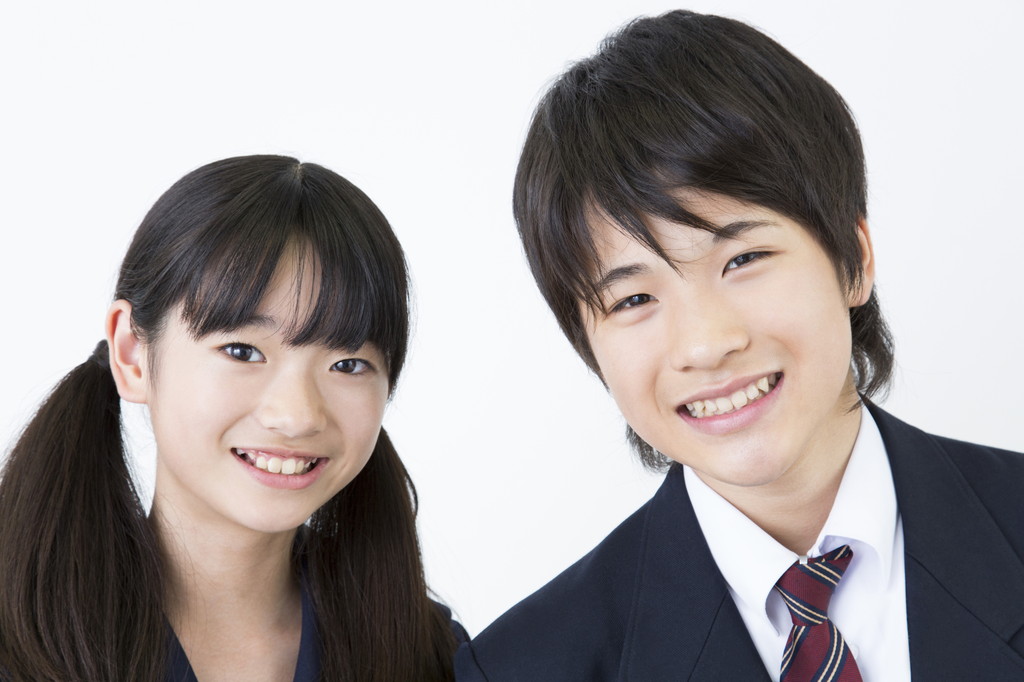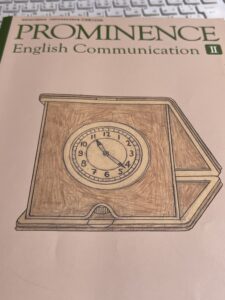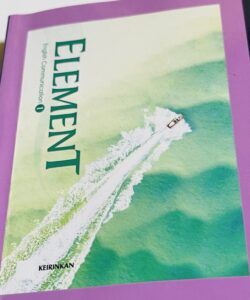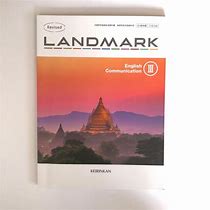奈良学園前と西宮夙川にある英語専門塾です。試験前の生徒の為にオリジナルのプリントを作って対応しております。その中から少しずつアップしていきます。
高校生が使う クラウンのレッスン2です。。
自習勉強にお役立てください。
Section 1
Marie Kondo, a tidy consultant, ❶( ) you ( ) ( ) ( ) your personal space. She insists that you should keep things ❷( ) ( ) they spark joy.
❶ あなたに片付けるように言う
( )you ( ) ( ) ( )
❷ ~する場合のみ ( ) ( )~
❶ It is human nature to collect things: a lot of colorful pens, a new pair of pants, a fashionable T-shirt, a pair of cool sneakers. We love these things when we buy them. However, we put them into a drawer or a closet and forget about them.
❶ 下線の示す内容を英語で書きましょう。
❷ 人間の性質とは何か日本語で説明しましょう。
Soon our living space ❶ is ( ) ( ) too many things: too many pairs of socks in our drawers, too many shoes in our closet. Books. Books. Books. ❷That can be a source of frustration. Our belongings ❸have( ) ( ) ( ) ( ) a real headache for us. What should we do?
❶~で一杯になる is ( ) ( )
❷日本語に訳しましょう
❸結果として頭痛の種と成ってしまっている
have ( ) ( ) ( ) ( ) a real headache.
Marie Kondo, ( Kon Mari, ❶( ) ( ) )has a solution. From an early age ❷ ( tidy / she / and / keeping / liked / neat / her room.) She ❸was ( ) ( ) magazine articles about how to organize your space. ❹She not only put her own space in order, but she also cleaned and tidied up her sisters room.
❶ 略して ( ) ( )
❷ 並び替えましょう
❸ ~に夢中になる was ( ) ( )
❹ 日本語に訳しましょう。
True or False
- We buy many things but put them into drawers because we come to hate them.
( )
- Our belongings can become our enemy later. ( )
- KonMari knows how to solve a big problem about our belongings. ( )
質問に答えましょう、
- What do people often do after buying things they love?
- What did Marie Kondo like doing when she was little?
Section 2
❶ While in college, Kon Mari started working ❷( ) tidying consultant in Japan. In 2014, she went to the U.S. ❸ to introduce the KonMari Method. She has been working hard, and her method is a great success all over the world.
❶ 省略されていない形に書き換えましょう、
❷ 『~として』 ( )
❸ 不定詞の ( 名詞的 形容詞的 副詞的 )用法
One of KonMaris ❶most important principles is this: Keeping things only if they spart joy.
Some of her clients have lots of unread books. But they don’t know ❷ ( ) ( ) ( ) and ( ) ( ) ( ). Perhaps they will read them sometime. But sometime never comes. KonMaris advice is ❸ to take each book in your hands, and if it parks joy, keep it. ❹ If not, throw it away. But don’t forget to say Thank you for your good service.
❶ 具体的に日本語で書きましょう。
❷ 『何を残して、何を捨てるべきか』
( ) ( ) ( ) and ( ) ( ) ( )
❸ 不定詞の (名詞・形容詞・副詞)的用法
❹ 省略しない形でかきましょう。
She adds : “You never read the book, but you still learned ❶ something from it. You learned that you didn’t need that book.
The same ❷( ) ( ) all of your belongings. That’s ❸( )the process of tidying starts.
❶ 具体的に日本語で書きましょう。
❷ 『当てはまる』 ( ) ( )
❸ 適切な関係副詞を入れましょう ( )
質問に答えましょう。
- Why did KonMari go to the U.S.?
- If we can’t decide which book to keep and which book to throw away, what would KonMari tell us to do?
Section 3
KonMari is not telling us ❶ to ( ) ( ) stuff ( ). She treats her belongings like living things. One day, while she was in high school, she bought a new cell phone. Then she sent a message to her old phone: “You have been helping me for many years. Thank you.” Her old phone rang immediately, and she checked ❷ the text. Of course, it was her message. She said to her old phone, “Great.” My message reached you. Then, she closed it,
❶ 『ものを無慈悲に捨てるように』
to ( ) ( ) stuff ( )
❷ 内容を日本語で書きましょう。
When she opened her old phone a little later, she ❶ was ( ) ( ) ( )find a blank screen. ❷ Her old cell phone ( ) ( ) ( ) ( ) her message. Its job was done. KonMari admits that this was probably just a coincidence. But it illustrated her idea we should show respect to our belongings, even when we are throwing them away. We have ❸ a very ( ) ( ) ( ) our belongings.
❶ 『見つけて驚いた』 was ( ) ( ) ( ) find
❷ 『彼女の古い電話は彼女のメッセージを受け取った後に止まった。』
Her old cell phone ( ) ( ) ( ) ( ) her message.
❸ 『~と密接な関係があります。』
a very ( ) ( ) ( ) our belongings
True or False
- KonMari’s old cell phone didn’t receive her last message. ( )
- The old cell phone went dead just after it received her last message. ( )
- We have a very close relationship with our belongings, so we should not throw them away. ( )
質問に答えましょう。
- What happened to KonMari’s old phone after receiving the last message?
- What does KonMari think about her belongings?
Section 4
Our belongings are the result of our choices., ❶ ( ) ( ) ( ) ( ) ( ) things is so difficult. KonMari tells us to ask ourselves: ❷“Am I having trouble throwing this away because of an attachment to the past or because of fear of the future?” ❸ (discover / asking / values / us / will / our / that / help / question / life ).
l
❶ 『ものを捨てるのはとても難しいというのは不思議ではありません。』
( ) ( ) ( ) ( ) ( ) things is so difficult.
❷ 日本語に訳しましょう、
❸ 並びかえましょう。
❶Tidying is not just a way to make our space more livable. Its also a way ❷ to set our values and decide our future. When we organize our rooms, we ❸( ) ( ) set priorities. When we throw away old belongings, we ❸( ) ( ) make decisions. ❹Thus putting our space in order profoundly affects our lives, even work and family. Tidying up can transform our lives.
If you are uncertain about your future, ❺start ( ) things ( ). What are you truly interested in? What do you want to do in the future? ❻ 『試しにやってみてはどうですか?』
❶ 日本語に訳しましょう。
❷ 不定詞の(名詞 形容詞 副詞)的用法
❸ 『~するようになる』 ( ) ( )
❹ 日本語に訳しましょう。
❺ 『ものを整頓し始めましょう』 start ( ) things ( )
❻ 英作文しましょう。
True or False
- To decide our future, tidying up is very useful. ( )
- Throwing away old belongings affects our lives. ( )
- When you are not certain about your future, you should ask yourself what you are truly interested in. ( )
質問に答えましょう
- Why is it important to ask ourselves about throwing things away.
- If you are not sure about your future, what should you do?




